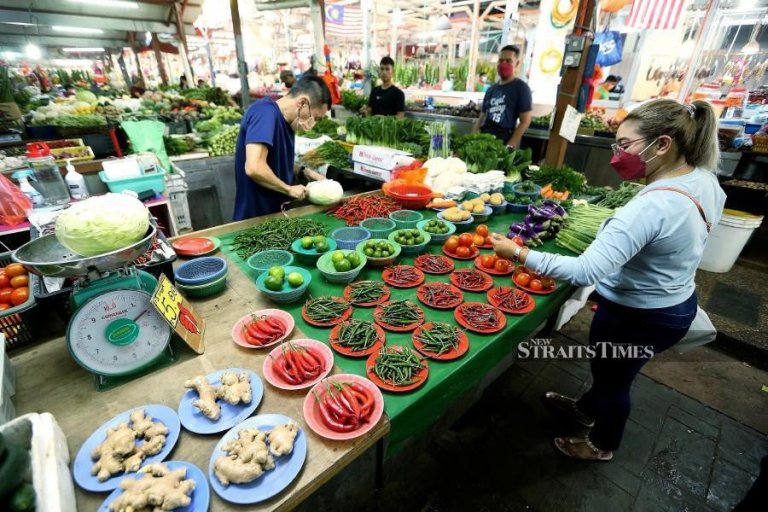By Adriana Asmaa’ Mohd Ezanee, Research Analyst (Temp), Institut Masa Depan Malaysia
The Department of Statistics recently reported a 6.1 per cent rise in food inflation, driving up the national inflation rate to 127.4 per cent in June 2022 against 123.2 per cent in the same month last year.
It is pertinent for the government to embark on new strategies and reforms on price mechanisms to check inflation as the country’s economy recovers from the Covid-19 pandemic.
Such measures will help the less fortunate afford some necessities while limiting the increase in prices.
Market price is determined by dynamic interaction of supply and demand.
Producers react to increased price and demand, but when the government intervenes through price controls and subsidies, they will no longer experience the direct effects of the natural market.
Intervention will establish the market price of certain goods and forces all or a significant portion of transactions to take place at that price instead of the equilibrium price determined by the interaction of supply and demand. This will affect decision-making on consumption and production within an open economy.
Consumers will purchase more products as prices drop and vice versa. Producers’ reaction to price shifts will make them supply at various prices.
When buyers and sellers are unable to transact freely due to the intervention, it may hinder incentives for increasing productivity and efficiency, impeding the producers’ long-term development and competitiveness.
To strengthen our economy, price mechanism reforms should get the attention of the government and policymakers.
In Malaysia, some goods, including petrol, natural gas, electricity, wheat flour and sugar are subject to price controls and subsidies.
As a first step to such reforms, we should consider abolishing the sugar subsidy, which is unnecessary and costly to the budget. Of course, it was initiated with the intention of keeping sugar price in check to ease the burden of the targeted group, particularly the poor.
Given the worrisome rise in sugar-related health concerns, with the 2019 National Health and Morbidity Survey estimating that 3.9 million Malaysians have diabetes, do we really need a subsidy for sugar?
Filipinos, Indonesians and Thais are paying more for sugar despite having a lower per capita income than Malaysia. The price of sugar in Malaysia is RM2.95 (US$0.66) per kg, whereas in Indonesia, it’s RM3.72 (US$0.84).
Since sugar is not a basic necessity and its overconsumption is damaging to health, it should, therefore, be sold at market price. With elimination of the subsidy, the price of sugar is expected to jump by 80 sen per kilogramme.
By eliminating the subsidy, the government will significantly contribute towards reducing sugar consumption and promoting a healthy lifestyle, while raising budgets for programmes that help targeted groups, such as the poor and needy.
A comprehensive social protection system that includes social assistance, insurance and human capital development should be developed to replace regressive blanket assistance.
These would provide vulnerable households with more than just short-term assistance, enabling them to raise incomes by developing their skills and capabilities.
More specific grants and incentives should be given to businesses to promote innovation and productivity so that businesses will be able to adapt to rising costs and move up the value chain into more complex, technologically advanced and profitable ventures.
The role of relevant government ministries and agencies should shift to shaping regulations to promote healthy and competitive markets.
Consumers can also benefit from a broader variety of higher quality products and services at reasonable prices with protection by well-developed regulations and enforcement.
The government and policymakers should act at the right time and guarantee that short-term and long-term solutions are executed with diligence to buffer negative consequences of price changes.
These will ensure the economy can adapt to changes in cost and price, making it more inclusive, shock resistant and dynamic.
Savings from these measures will allow the government to spend more on healthcare, education and public infrastructure.
We will benefit from an economy that is more prosperous and inclusive, from increased opportunities to develop high-skilled and high-income jobs and improved access to goods and services of higher quality.
These reforms will put Malaysia’s economy on a more sustainable, inclusive and dignified growth path amid current and emerging challenges.
Image: img src=”https://assets.nst.com.my/images/articles/sppldplpa_1658851235.jpg”
